Throughout her illustrious career, Noor Farida Ariffin was clear-eyed in her mission to protect the weak and vulnerable through the rule of law.
Fierce and unwavering in her principles, she chalked up many firsts. In her trailblazing work to advance the rights of Malaysian women and to keep them safe from harm, she made noteworthy differences in the lives of many.
There were occasions when she readily placed herself in the line of fire.
Undeterred, she would speak up loudly, always pointing out in her usual forthright manner, the inequities and wrongs she witnessed around her. Above all, she believed in and fought for justice and fairness.
As a government servant, this was not always a welcoming trait and, naturally, she paid the price for challenging the authorities.
Despite that, Farida never lost sight of her goals: Good governance and a truly inclusive multi-ethnic Malaysia.
Here are three articles dedicated to the sorely missed and much-loved Farida, written by Zainah Anwar, Ivy Josiah and Ambiga Sreenevasan. These three women were inspired by her enthusiasm, intelligence and energy and, over the years, became Farida’s firm and loyal friends in both activism and life.
Zainah Anwar on Farida
I can’t remember the first time I met Farida. It seemed as if I had always known her. She was a force of nature, so eloquent, forceful in her convictions, courageous and principled.
We shared a house in the 1980s when Farida was president of the Association of Women Lawyers (AWL) and vice-president of the Women’s Aid Organisation (WAO). It was here that we spent much time joining hands in various causes.
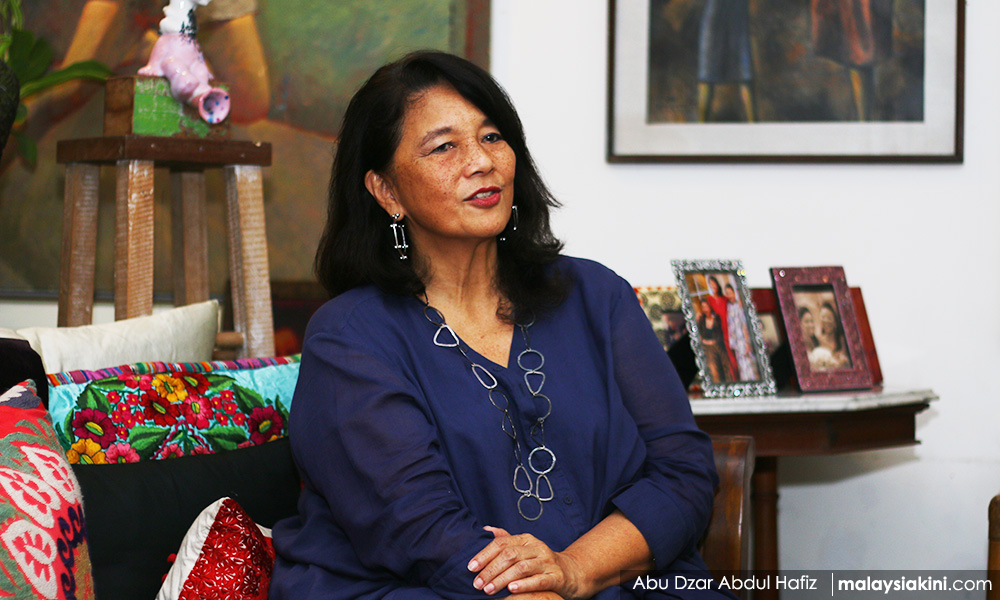
First, was the campaign to criminalise domestic violence. A coalition of women’s groups had been formed and Farida was a key leader in drafting the model law and negotiating with government agencies to reach an agreement to make domestic violence a crime.
Of course, there was resistance from officials from the Religious Department who argued that the law could not apply to Muslims, justifying their position in the self-serving belief that in Islam a man had the right to beat his wife. It was simply outrageous to us.
We had to develop a position and arguments to challenge why this law must apply to all Malaysians, regardless of religion.
The campaign for a Domestic Violence Act took 11 long years before the law was finally passed by Parliament in 1994 and another two years before it was gazetted and implemented.
It was also with Farida that we began to work on Muslim Family Law reform. As AWL president, Farida had given interviews on the discrimination women faced in the syariah courts.
Somehow one of the newspapers published our home telephone number. In the days after, our house phone was ringing with women complaining about delays in getting their divorce, about being told by religious officials that their husbands had a right to beat them, that men had a right to take second wives and therefore polygamy, no matter how harmful, could not be cited as a ground for divorce.
This led us to discuss the need to look at the Muslim Family Law and its shortcomings both in the substance of the law and its implementation.
Farida introduced me to the syariah sub-committee of AWL. The sub-committee began to meet weekly in our house to discuss the challenges women faced in accessing their rights under the law and what needed to be done to improve the system.
Sisters in Islam
We began to hold meetings with Hawa, the women’s affairs division within the Prime Minister’s Department to organise a conference on the administration of Muslim Family Laws and their impact on women’s rights.
Hawa roped in the then Pusat Islam to ensure that syariah court officials and judges gave their inputs and attended the conference, and we came up with resolutions to improve the ways women’s rights could be protected.
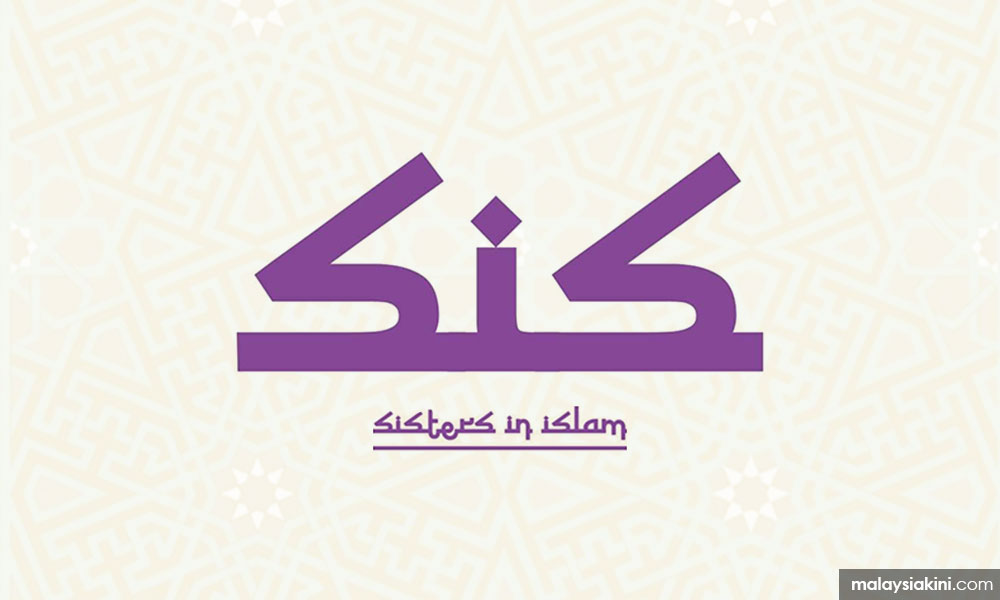
Today, it seems like ancient history that there was a time when we in the women’s movement could easily work with far more cooperative government departments on the issue of family law and Muslim women’s rights.
These two campaigns that Farida co-led gave birth to the idea of Sisters in Islam (SIS). The women’s movement needed a group that had the knowledge and courage to challenge the ways patriarchal authorities interpreted the teachings of Islam and used them as a source of law, policy and practice in ways that harm women and children - simply to maintain male privilege and power.
By the time the group that used to meet under the auspices of AWL evolved into the eight-member SIS, Farida had left for London to be the director of the Women and Development Programme at the Commonwealth Secretariat.
Upon her return in 1992, Farida still contributed to SIS deliberations on law reform whenever we asked for her expert input. I still remember the time when the Guardianship of Infants Act was amended in 1999 to allow equal rights for mothers to be guardians of their children.
However, the law could not be applied to Muslim mothers, as guardianship came under syariah jurisdiction. We knew the idea of amending the state-level Muslim family laws to align them with this new right accorded to non-Muslim women was a non-starter.
These men in authority asserted family law was God’s law not open to change, and moreover, they believed women were inferior to men and therefore could not have the same authority to make decisions on behalf of their children.
Farida brilliantly advised us to look at the effects of the law on women. The major impact of the discrimination meant that Muslim mothers would not be able to sign documents for their children to apply for passports, register for school and undergo surgical procedures.
These were not Islamic issues, she asserted. These were federal matters under the jurisdiction of the Home Ministry, Education Ministry and Health Ministry.
Procedural reform
So instead of embarking on a Herculean task to amend the Muslim Family Law, we decided to strategise for procedural reform.
We proposed to the cabinet to make a policy decision that all official forms that required the signature of the guardian be amended to simply state the signature of the guardian, mother or father. This would thus enable all mothers, including Muslim mothers, to give their permission.
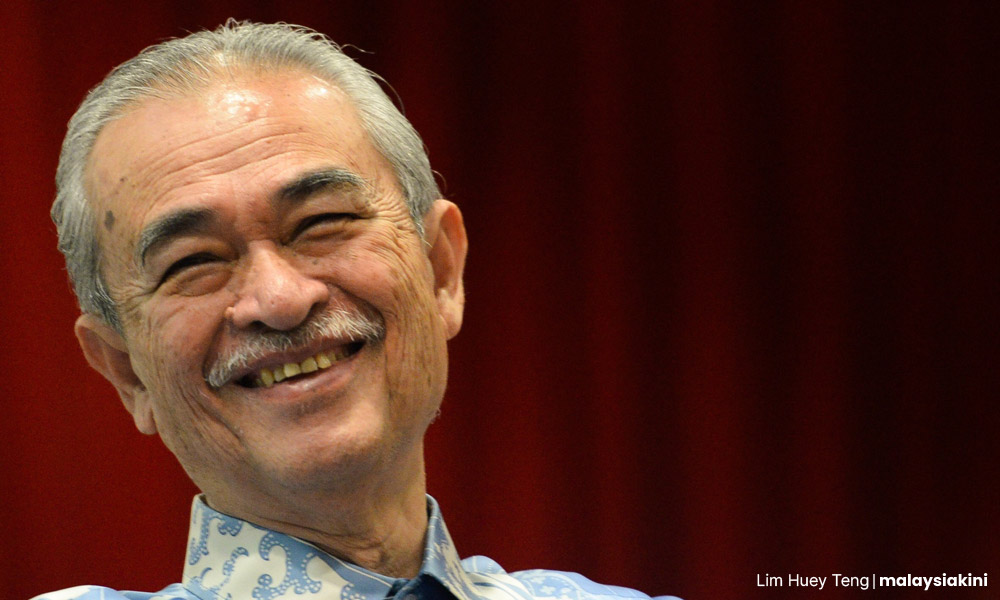
We were told that when the proposal was brought up to the cabinet by the then-deputy prime minister Abdullah Ahmad Badawi, many ministers spoke out in ready support as they had female relatives who had suffered the same discrimination and had complained bitterly of the dire straits they were in when errant fathers refused to sign these official forms or were nowhere to be found at these critical moments.
It was to Farida I turned to when helping G25 release its open letter in December 2014, urging the then-prime minister to show leadership in the face of intolerant voices making belligerent demands in the name of race and religion.
None among the retired top civil servants who led the process was keen at that time to be the spokesperson. But we knew the letter would make headlines given the long list of eminent Tan Sris and Datuks who had signed up, including Farida.
Someone had to be the face to give interviews and respond to media inquiries. Farida, who was already so used to controversy and speaking out, readily agreed to put herself on the firing line.
The rest as we know is history. Farida continued to play a key role, together with her colleagues, in the drafting of various G25 statements on a wide range of policy matters to push for good governance and a truly inclusive multi-ethnic Malaysia.
But Farida was not only an indefatigable fighter for rights and justice. She was also an extremely warm, kind and generous person.
Living life to the fullest
Farida lived life to the fullest. She loved swimming in the Lake Club pool and going to the gym. She was a big fan of Rafael Nadal and Roger Federer (as long as one of them defeated Novak Djokovic), and would stay up late into the night to watch the Grand Slams.
She loved travelling and weekend drives to the countryside, she loved the arts, cooking and entertaining. Those times when I was in the Hague and in London with her, she hosted numerous lunches and dinners for visiting Malaysians, friends and colleagues.
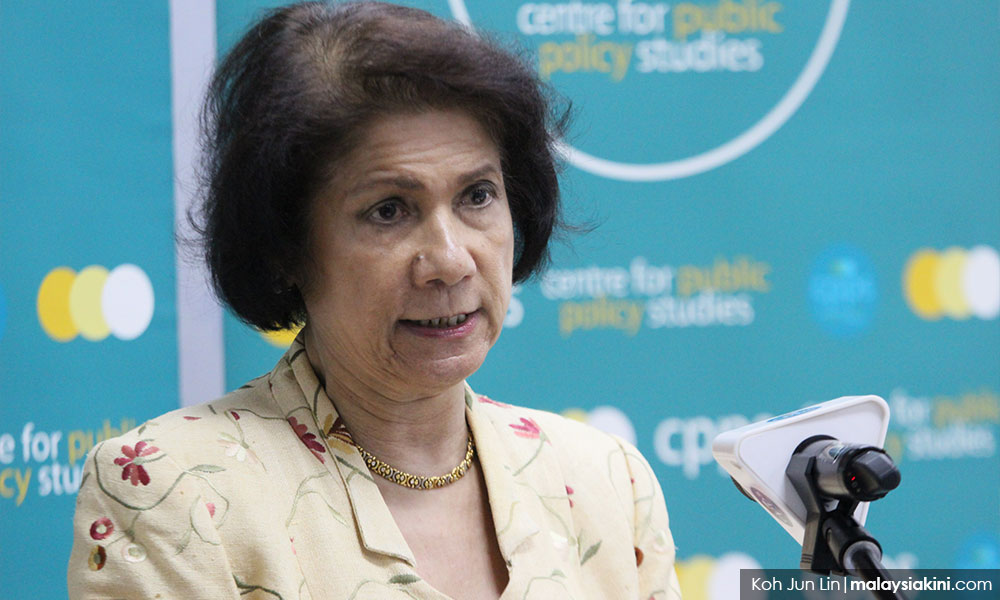
And those were raucous occasions as we discussed and argued and laughed on a whole range of issues and gossip.
She often drove us to English villages, travelled to other European cities and enjoyed her three-course meals at every lunch and dinner. She loved to go on walks and picnics in the park, cycling in the dunes and forests around the Hague, and nights out to the ballet, opera, and theatre in London.
She loved cats. The night before she passed on, the family videoed her favourite cat, Jimbo, and got him to meow loudly (by tugging his tail), holding the phone to her ear to comfort her as she had been asking for her beloved before she lost consciousness.
For our dear Farida, nothing was beyond her interest. Nothing was done in half measures, whether in life or in love, whether at work or at play.
That she is gone too soon leaves a chasm in our lives, and in the inclusive Malaysia she dreamt of building.
Ivy Josiah on Noor Farida
Farida has a long list of firsts.
She was a pioneer member of the WAO executive council, a founding member of two regional women’s organisations, the Asia Pacific Forum on Women, Law and Development (APWLD) and the International Women’s Rights Action Watch, Asia Pacific, and the first to be appointed as director-general of the newly created Research, Treaties and International Law Department of the Foreign Ministry.
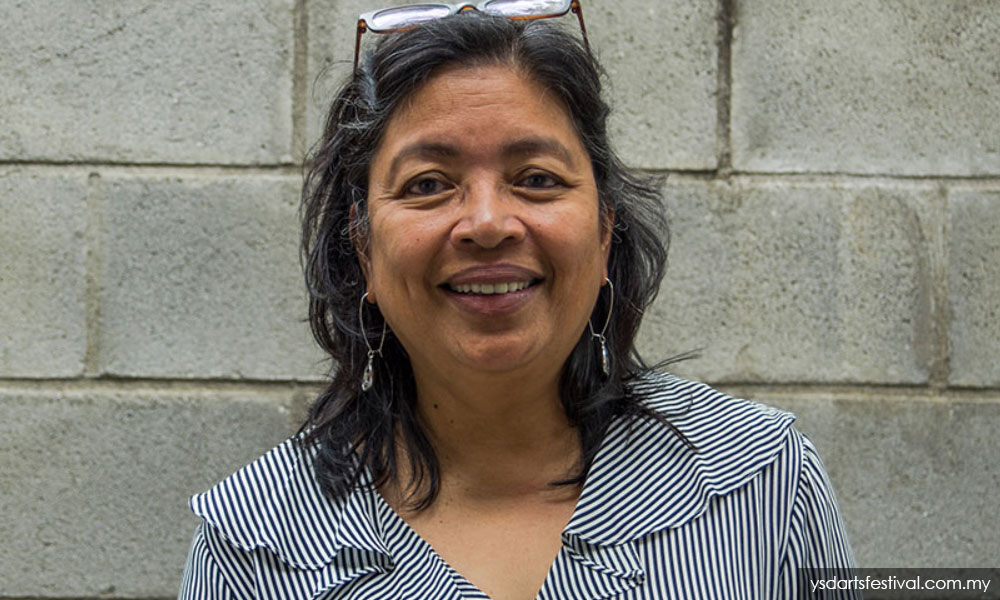
In 1981/82, Farida played a key role in establishing Malaysia’s first refuge for victim-survivors of domestic violence. She was in the pro tem committee that was set up by Chong Eu Ngoh in November 1981, and at the first annual general meeting of WAO in 1982, Farida was elected the vice-president.
My first memory of Farida was at the 1985 ground-breaking Joint Action Group for Gender Equality workshop at Petaling Jaya’s MTUC hall. This workshop marked the beginning of public awareness regarding the violence women face in both private and public spaces.
The two-day event featured panels, poster exhibitions, performances, and a moot rape trial that focused on issues such as rape and sexual harassment, domestic violence, prostitution, and the portrayal of women in the media.
Farida spoke on a panel addressing the need to reform the Penal Code and the Evidence Act. She argued for broadening the definition of rape, establishing minimum sentences for rape, increasing the statutory rape age, enhancing penalties, and prohibiting the use of a rape survivor’s sexual history in rape cases.
Role model
I became an immediate admirer. Farida was articulate, sharp, witty, and incredibly convincing. As someone just beginning my journey as an activist, I found her to be an exceptional role model, someone I aspired to emulate.
We became friends, a group of pioneering members of WAO, bonding over many sumptuous meals and endless conversations about making Malaysia a safer place for women.
The early days of WAO were invigorating and spirited. We were feminists in disguise, as at that time, we had to conceal our feminism to avoid being labelled as bra-burning man-haters. It was clear that we did not hate men; we despised violent men and detested the patriarchy even more.
As WAO volunteers, we spent a lot of time at the Refuge, interacting with the women who sought shelter there. Farida often roped us into doing aerobics, Jane Fonda-style, with the women and children. Whether it was sorting through items for a jumble sale or attending advocacy meetings to strategise law reform, Farida was always there, speaking loudly and laughing even louder.
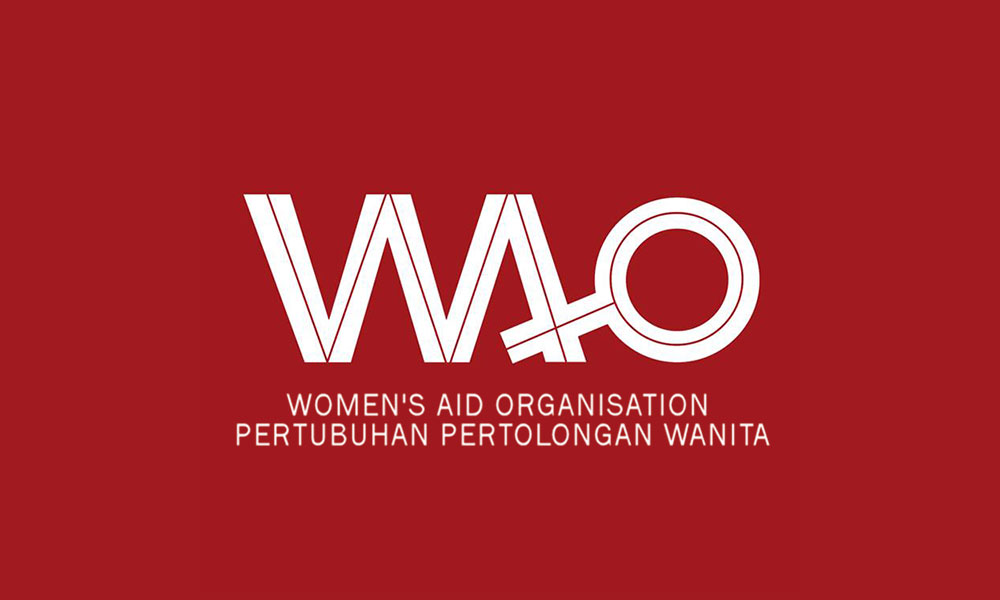
Wearing three hats as WAO vice-president, AWL president and a legal officer at the Attorney-General’s Chambers, she continued to campaign for laws against violence against women.
In June 1986, we joined forces with the National Council of Women’s Organisations, the largest umbrella body for women’s organisations, to launch a national campaign on violence against women.
Farida was instrumental in getting the police to set up a special investigation unit for women officers to handle sexual assault cases.
With her wide international network, she arranged through the Women and Development Programme of the Commonwealth Secretariat to provide a resource person, one Sergeant Bob Holmes from the Royal Canadian Mounted Police, to conduct training on sexual assault for our police.
Fearless and unwavering
The late 1980s were a dangerous time for NGO activists. The dreaded Internal Security Act (ISA) was used liberally; we witnessed in horror Ops Lalang 1987 when 117 activists were detained without trial, and taken away in the middle of the night.
Farida once again spoke up. Her position as a government servant did not deter her. AWL launched a petition against the ISA, and she paid a price for her public stance.
“I was frozen out,” she said in an interview. “They put me in cold storage. I did not get my promotion, even though I felt I was a relatively good legal officer.” She often remarked to friends how 37 other junior legal officers were promoted above her.
In the late 1990s, the campaign for a Domestic Violence Act saw the passing of the law in Parliament in 1994, but yet in 1996, the law was not implemented because of a misguided notion that this law should not be applied to Muslims.
In a biting letter to the editor, she wrote as AWL president and chastised the detractors, asking why Muslim women should not be protected from family violence, rejecting the perception that Islam allowed for wife beating.
Farida was fearless and unwavering in her principles. A woman of deep faith, her practice of Islam fuelled her determination to speak truth to power. Without hesitation, she advocated for the rights of S Deepa and Indira Gandhi, both clients of WAO, whose children were converted to Islam by their mualaf (convert) fathers without the mothers’ consent.
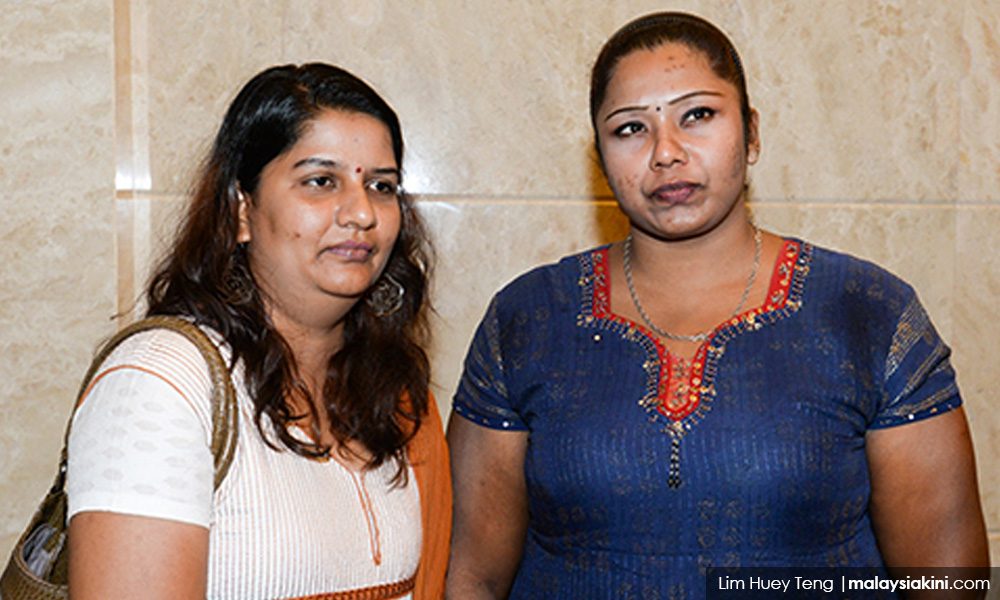
Farida was unequivocal in her standpoint. The equality clause Article 8 of the Federal Constitution ensured equality for all.
When the Court of Appeal ruled against Hindu mother Indira, saying that only syariah courts had sole jurisdiction to decide the religious status of her three children, Farida opined that this was a clear abdication of the court’s responsibility because litigants like Deepa and Indira, being non-Muslims, could only seek justice in the civil courts.
Farida always had a special place in her heart for WAO. When she became ambassador to the Hague in 2007, she helped direct funds from the Netherlands to the Refuge and was always ready to assist with financial needs whenever necessary.
She did not suffer fools lightly and had a sharp tongue when she was challenged. However, at her core, she was generous in spirit, caring, and fiercely loyal to her friends.
Ambiga Sreenevasan on Noor Farida
Farida lived a remarkable life. During her career as a civil servant, she never hesitated to speak frankly for truth and justice. She did not see any contradiction between her role in government on the one hand, and the fight to uphold the rule of law, on the other. Indeed, she saw it as her primary duty to protect the public interest, no matter the consequences to herself.
I had the honour and pleasure of working with Farida and other dynamic women of her ilk when I was a junior lawyer more than 40 years ago. There was a deep sense that the state of women’s rights was abysmal and women lawyers and activists needed to be at the forefront fighting for change.
My initial interaction with Farida took place during the formation of WAO and in the AWL where young lawyers like myself were inspired by seniors like Farida who articulated their views so eloquently and without fear or favour.
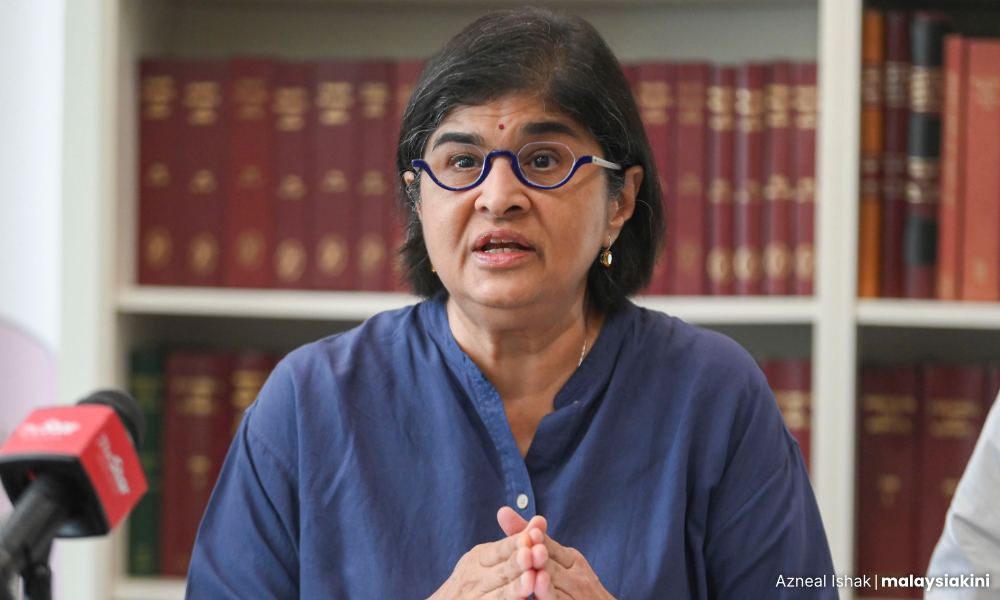
I recall the many meetings we had in each other’s homes and the camaraderie we enjoyed, creating lasting friendships that saw us into our later years. I now realise how lucky we were to be in the midst of women like Farida who shaped our thinking and approach to protecting the vulnerable and weak through the rule of law.
Farida served as Legal Aid Bureau director in the early 1980s. Her then-deputy director, Lim Heng Seng, who described her as a “constitutional patriot”, recalled how she pushed boundaries, not willing to be confined by the stifling and narrow scope of matters assigned to the bureau.
He said she encouraged and sanctioned officers to take on almost anything they were capable of handling. These ranged from employment and consumer claims to personal injury claims.
Lim recalled the significant and weightier briefs the bureau took on - intervening in the right of an Orang Asli resident of Bukit Lanjan, a judicial review by Pulau Tioman residents on alienation of their land by the state authority of Pahang, a watching brief held for parents of an infant who drowned in Mimaland, which culminated in an award of damages.
A teenager who had his leg amputated obtained damages for medical negligence. A landmark reported case saw the bureau succeeding in a minimum wage claim before the Supreme Court. The apex court ruled that special relief allowances do not form a part of the minimum wages prescribed by law.
Farida energised the bureau which had often been associated with family law matters in civil or syariah courts. She stood her ground in extending the scope of legal aid coverage.
Her tenure demonstrated how a government agency constituted to help the poor and marginalised could, with dynamic and purpose-driven leadership, serve well its true objectives and mission, said Lim.
Ongoing fight for justice
From the Legal Aid Bureau, AWL, WAO, and the influential G25 (to name a few), Farida never stopped fighting for what was right and just for others. We learnt from her that one never can and that the fight for justice is an ongoing battle.
Farida never minced her words in speaking truth to power including on sensitive issues that touched on Islam. She was herself a staunch and deeply religious Muslim who was abundantly endowed with compassion for others.
She read widely and her mastery of the English language was a joy to behold. She was particularly knowledgeable about world affairs. Her laughter was infectious and her love of life was all-embracing.

She brought an energy with her, invigorating every conversation and making it unforgettable. She also listened carefully to what others would say and would remember it in detail.
Thanks to our WhatsApp groups, we kept in touch on a regular basis and, despite her illness in recent years, the Farida we knew and loved continued to articulate her views as eloquently and courageously as she always did.
Although illness restricted her movements, she remained caring, informed and interested. She did not allow her failing health to take anything away from her.
Sometime in April, a story about a cobbler named Bohari in Sarawak made the news. He had gone out of his way to help two strangers - Aw Joo Lee and her wheelchair-bound mother. Farida’s comment about this report was: “This is a wonderful example of Malaysians of different races helping each other. I have always believed that ordinary Malaysians are good people and are not at all racist. It’s our politicians who play racist politics for their own ends.”
In another instance, in late September last year, there was a news report about a poor man (whom Farida did not know at all) facing charges without legal representation, in Terengganu. She contacted me immediately, asking if legal aid could be arranged for him.
As I said, she never stopped caring. She firmly believed that every person deserved a fair chance before the law.
A few of us visited Farida earlier in the year and she was upbeat and cheerful and spoke frankly about her illness, never allowing it to affect her. She was busily keeping in touch on WhatsApp with all her friends and was up to date on all the news. It was easy to forget that she was ill as we talked and laughed as we always did.
I do not know how one can do complete justice to the life of someone whose very presence lit up a room, who did so much for the good of others and who contributed a lifetime of service to the community. She was a true Malaysian hero who only wanted the country to soar as she believed it could.
Farewell, my dear friend, Farida. You have lived an honest and worthy life and you have left a lasting legacy which is difficult to emulate. Thank you for the many wonderful memories you have left with us. May you rest in eternal peace. - Mkini
ZAINAH ANWAR is a co-founder and former executive director of Sisters in Islam and the co-founder and director of Musawah, a global movement for equality and justice in the Muslim family.
IVY JOSIAH is a former Women’s Aid Organisation executive director.
AMBIGA SREENEVASAN is a lawyer, activist, and optimist. She is a former president of the Malaysian Bar and National Human Rights Society (Hakam), as well as a former co-chairperson of the electoral reform group Bersih.
The views expressed here are those of the author/contributor and do not necessarily represent the views of MMKtT.




No comments:
Post a Comment
Note: Only a member of this blog may post a comment.